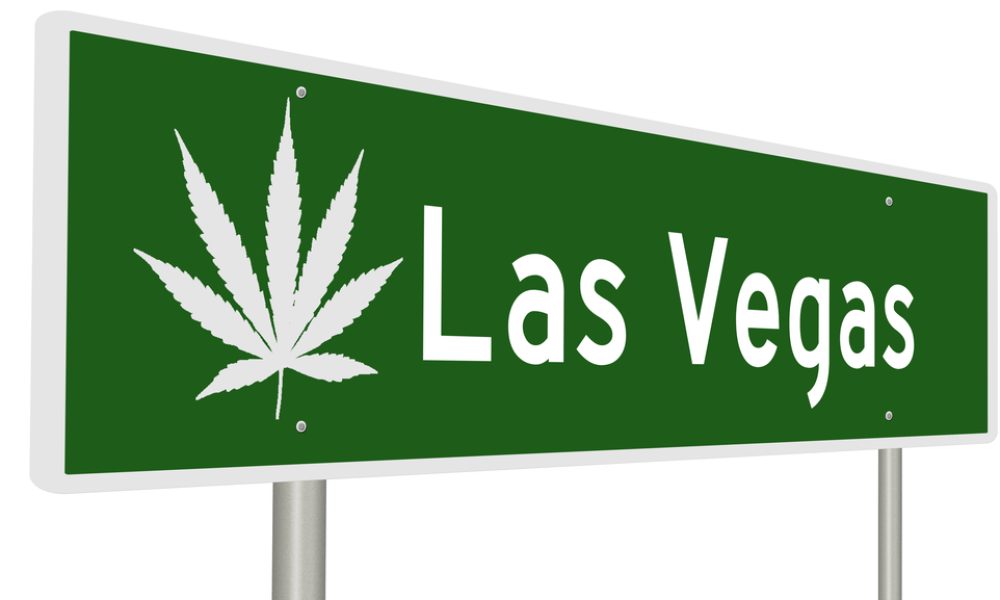Seth Schorr, the CEO of Fifth Street Gaming, said Las Vegas tourism would benefit if laws and regulations allowed casinos to host cannabis lounges and allowed their customers to have it delivered to their hotels.
Schorr made his remarks at a panel discussion this week hosted by the Cannabis Policy Institute and International Gaming Institute on the campus of the University of Nevada Las Vegas.
The discussion included cannabis operator David Goldwater and former Nevada Gaming Control Board member and UNLV law professor Terry Johnson.
When recreational cannabis use was legalized a decade ago, regulators were cautious, since cannabis use is illegal at the federal level. But Johnson mentioned the option to revisit the issue in the future.
“Now it’s been a decade and the question is, is it time we push the envelope?” Schorr said. “In Las Vegas, we’re competing against other jurisdictions. Online gaming wasn’t a thing 10 years ago. Visitation is down in Las Vegas. We need every tool in the toolbox as a city to drive visitation. Maybe 10 years ago, you had to be conservative, but today it’s got to be on the table.”
Johnson said they didn’t want to encourage federal oversight of the Nevada gaming industry. Casinos have also been leery, fearing being at risk of federal banking laws.
Schorr said some people want to use marijuana when they come to Las Vegas. There’s a question about the size of that demographic, but the city should cater to them.
“I think there is a market, but you don’t know until you try it,” Schorr said. “A large part of my career has been identifying niche opportunities and creating experiences for a subset of the population that wants or expects different things than the general population. I have to assume a large population would like a casino-resort with all of the amenities and consumption lounges. Yes, other people would stay far away from that. Not every property would go all in, but I think it’s large enough that it would work. We can’t afford to miss any opportunity. We can’t rest on our laurels.”
Changes would need to be made.
Nevada law mandates a 1,500-foot separation between a cannabis business and casinos. Clark County prohibits legal cannabis operators from making deliveries to the Strip. A proposed law in the Nevada Legislature this year would have legalized deliveries to non-gaming properties in the Strip corridor to get the black market out of the area, but that was shelved as casinos were concerned about violating federal banking laws. The DEA classifies marijuana as a Schedule 1 drug.
“People go on vacation and want to do the vices. We allow them to drink and gamble and when they take a vacation some want to smoke marijuana. Las Vegas is about creating an experience that’s better than the one you can have at home,” Schorr said. “As other jurisdictions find a way to introduce this into their experience, it’s a handicap.”
Schorr said entrepreneurs should be allowed to innovate and that cannabis and tourism would benefit some operators. “I don’t know if every property on the Strip would. The bigger properties would want to see if it’s successful. But I can see innovative operators like Derek Stevens [the owner of Circa and other downtown properties] creating the world’s greatest lounge and if it works, you’d see it at an MGM property. To do something new takes someone to think creatively. Not everybody fits that mold, but there are plenty of creative operators.”
Goldwater said that having access to tourists and the ability to compete against the black market would make the Nevada cannabis industry more profitable and result in more tax revenue. Dispensaries would love to partner with the casino industry and be treated like any other business.
“Nevada is one of the few states where you can have a drink, visit a prostitute, gamble 24 hours a day seven days a week, yet we have this western independent conservative bent to the population where we need to separate these vices,” Goldwater said.
Schorr said he’s watched the cannabis industry mature and if gaming licensees were involved, it would be a much bigger and healthier business.
“We’re in the early innings of what cannabis policy looks like. I don’t believe we’ve scratched the surface in terms of what cannabis tourism can look like,” Schorr said.
Looking back, Johnson maintains gaming regulators and lawmakers made the sound choice for keeping gaming away from the cannabis industry.
“There are worst-case scenarios of gaming licensees being prosecuted or gaming assets seized in forfeiture actions. People think it was too heavy handed, but it was the better-safe-than-sorry approach protected the industry and its reputation,” Johnson said.
Goldwater added that the casino industry not being initially involved with cannabis allowed smaller entrepreneurs access to the bigger industry. He called it frustrating, however, that when tourists discover that cannabis can’t be delivered to hotel-casinos, they turn to the black market whose unregulated products and delivery can’t be verified as safe.
“Being able to deliver and serve the tourism corridor would significantly assist legal sales and compete with the black market,” Goldwater said. “Allowing cannabis lounges on the property would increase sales volume and taxes.”
Goldwater called cannabis a complicated issue and urged Nevada and regulators to prepare for a possible federal change in its classification that would alleviate concerns.
“The more we can plan for it, the faster we can act, given the current administration is doing things quickly that nobody sees coming,” Goldwater said. “If cannabis is rescheduled or however it manifests, the sooner we can act and the more market share we can capture. We need to be ready for it when it does happen so Nevada can be a prime mover.”


